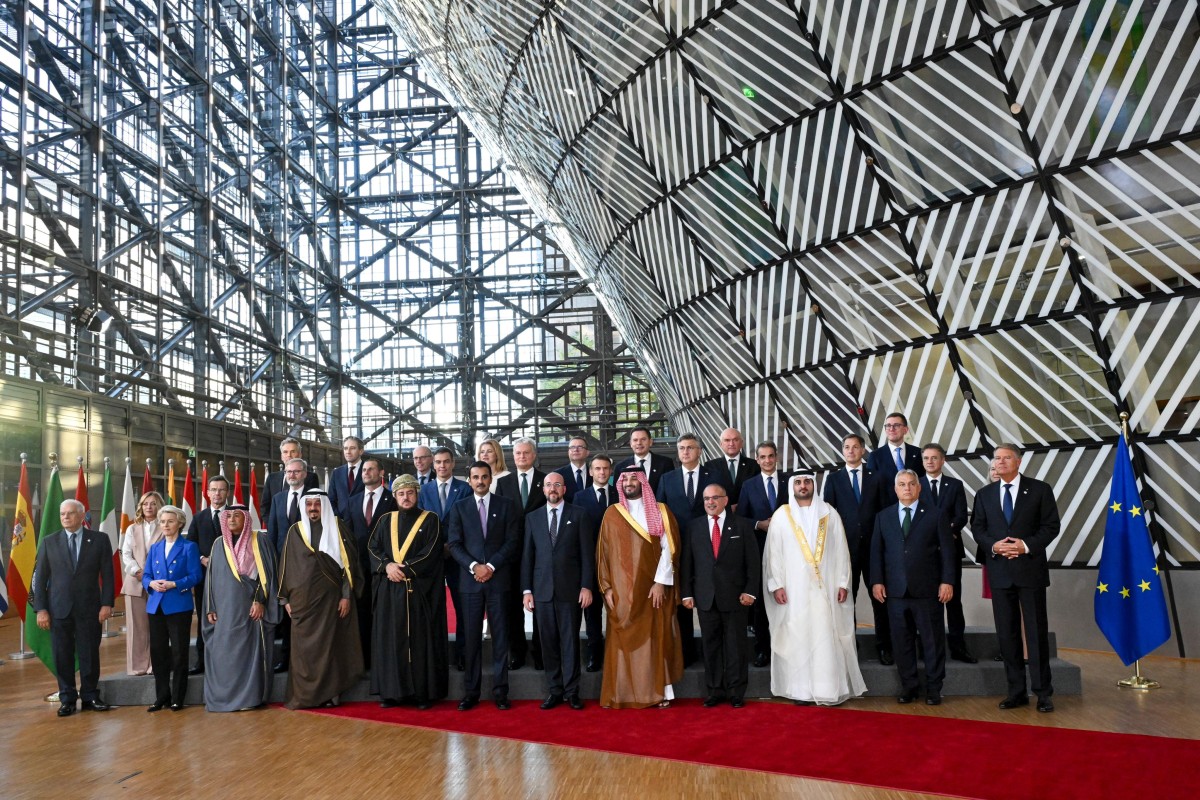The European-Gulf Summit... calls for reducing escalation in the Middle East and Europe


From Brussels, leaders of the European Union and Gulf Cooperation Council countries called for avoiding a large-scale conflict in the Middle East.
This summit between the leaders of the European bloc and the Gulf Cooperation Council, which includes the countries of the UAE, the Kingdom of Saudi Arabia, Bahrain, Kuwait, Oman and Qatar, is the first of its kind.
At the beginning of the summit, which she described as “historic,” European Commission President Ursula von der Leyen said, “We must do everything in our power and mobilize all our diplomatic skills to stop the very dangerous escalation” in the Middle East.
Gaza and Lebanon lead
Discussions focused on Israeli military operations in Gaza and Lebanon, as well as the risk of a broader regional war.
While Israel continues its attacks against Hezbollah in Lebanon and against Hamas in Gaza, its leaders say they are preparing to respond to the missile attack carried out by Iran on October 1.
Von der Leyen called for “an immediate ceasefire in Gaza and Lebanon.”
For his part, the Emir of Qatar, Tamim bin Hamad Al Thani, the current president of the Gulf Cooperation Council, called for “finding a comprehensive settlement to the conflict based on a just solution to the Palestinian issue.”
He added: “We look forward to this summit being a turning point in the process of historical relations that bring together the Gulf and European sides.”
In addition to the ongoing conflicts, including the war in Ukraine that is causing differences of opinion, the meeting, which was also attended by Saudi Crown Prince Mohammed bin Salman, dealt with trade, energy and climate change.
European Council President Charles Michel said that the geopolitical crises "have caused enormous human suffering, so we must act with greater determination and change the course of history. The future of our two regions is completely interconnected."
Summit statement
In their statement, the participants in the European-Gulf summit stressed “the necessity of cooperation in order to enhance security and reduce escalation in the Middle East and Europe.”
They also stressed “the need to reach as soon as possible a just and comprehensive peace in Ukraine in line with the principles of the United Nations Charter,” stressing “our commitment to the sovereignty and independence of Ukraine within its internationally recognized borders.”
They called for a complete ceasefire in Gaza, the release of detainees, the exchange of Palestinian prisoners, and ensuring the arrival of aid, stressing “our firm commitment to the right of the Palestinian people to self-determination through the implementation of the two-state solution.”
The attendees urged all parties to prevent escalation and engage in international diplomatic efforts to end the violence in the Palestinian territories.
They condemned “the ongoing violence by settlers and Tel Aviv’s decisions to expand settlements in the West Bank,” stressing the importance of preserving the historical status quo in Jerusalem and respecting the holy sites.
They also called for restraint, de-escalation in Lebanon, and preventing the conflict from expanding to a larger area, stressing “the need to ensure respect for Lebanon’s territorial integrity, independence, and sovereignty within its internationally recognized borders.”